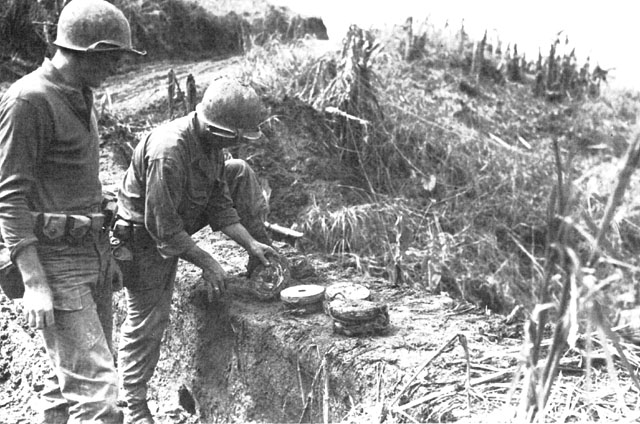The First World War saw the use of numerous land mines. Explosives of all sorts from the two World Wars are often found today, and it turns out that a good number are still located in the former battlegrounds of France. The disposal teams utilized to find these explosives are discovering with some consistency that many land mines are still active and lying in wait to be found.
A recent cache of explosives was found near the Vosges mountains, which was an important landmark during the First World War. The site claimed the lives of thousands during the war, and given its importance it seems unsurprising that a great deal of munitions were left behind. The land mines recently discovered are hidden in a large bit of booby-trapped piping. While the quantity of explosive devices inside the found piping is large, it does not even hold a candle to the sheer collective number of explosives which have yet to be found.
The disposal experts doing the bulk of the searching are based out of Alsace, which over the course of history has alternated between French and German ownership. The often contested region is supposed to be one of the larger sources of active land mines today. Aside from IEDs, the heavy use of artillery has also left quite a bit of explosive refuse around the lands, making the Alsace region somewhat dangerous for the uninformed.
Alsatian explosives are so numerous, that disposal experts are constantly at work and yet still believe that twenty percent of the war’s munitions never went off. Given the heavy use of artillery and other explosive weaponry, this makes it difficult to guess how many land mines and other dangerous devices are still out there to be found. These are then moved to safer locations where they are subjected to controlled detonations away from the public eye, the Business Insider reports.
These land mines, shells, mortars, grenades, bombs, and other devices have created a great deal of difficult but necessary work for disposal experts. Few of their removals are done through searching but from calls they have received that their services are needed. This means that almost every time they go to work, they do so because a civilian was luckily attentive enough to keep their life. It is of course possible, even plausible, that one day the disposal teams will be finished and all of the land mines will be cleared. As of now, that date seems to be a distant future with no estimation as to how long it will be.
